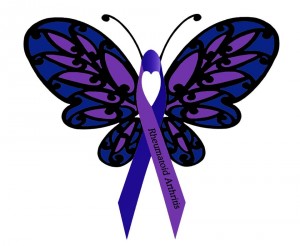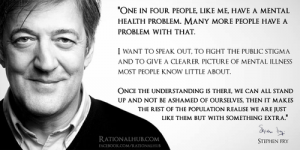As a child it is hard to understand all the various symptoms of Rheumatoid Arthritis she lived with and how they impacted upon the totality of her lifestyle. Certainly RA put massive strain on her marriage.
If you has asked me at the time I would have said that mobility was her biggest issue. Indeed she was housebound for the last 15 or so years of her life. The perhaps pain. She died 25 years ago when pain management was much more primitive that it is now.
But with the benefit of hindsight I going to suggest something rather different. I’d say now depression. She came from a generation which did not “mention these things”. Only after her death did I find out that she had been hospitalised a number of time for depression during the forties and fifties. Due in part to, of course, to the pressures of the war but also, I’m certain, to her RA.
Thinking about this I wondered to what extent her experience was similar to yours. To achieve this I was wondering if you could take part in the poll below which asks “What is your worst symptom of Rheumatoid Arthritis?”
If you would like it would be great if you could share more of your RA story in the comments section below. If we have missed out your worst symptom of RA in the poll please could you mention it in the comments section as well!
Many thanks in advance!




